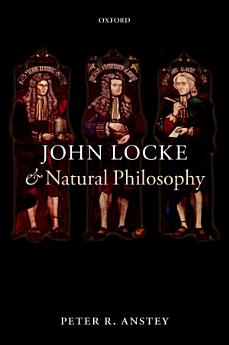John Locke and Natural Philosophy
Απρ 2013 · Oxford University Press
ebook
272
Σελίδες
family_home
Κατάλληλο
info
reportΟι αξιολογήσεις και οι κριτικές δεν επαληθεύονται Μάθετε περισσότερα
Σχετικά με το ebook
Peter Anstey presents a thorough and innovative study of John Locke's views on the method and content of natural philosophy. Focusing on Locke's Essay concerning Human Understanding, but also drawing extensively from his other writings and manuscript remains, Anstey argues that Locke was an advocate of the Experimental Philosophy: the new approach to natural philosophy championed by Robert Boyle and the early Royal Society who were opposed to speculative philosophy. On the question of method, Anstey shows how Locke's pessimism about the prospects for a demonstrative science of nature led him, in the Essay, to promote Francis Bacon's method of natural history, and to downplay the value of hypotheses and analogical reasoning in science. But, according to Anstey, Locke never abandoned the ideal of a demonstrative natural philosophy, for he believed that if we could discover the primary qualities of the tiny corpuscles that constitute material bodies, we could then establish a kind of corpuscular metric that would allow us a genuine science of nature. It was only after the publication of the Essay, however, that Locke came to realize that Newton's Principia provided a model for the role of demonstrative reasoning in science based on principles established upon observation, and this led him to make significant revisions to his views in the 1690s. On the content of Locke's natural philosophy, it is argued that even though Locke adhered to the Experimental Philosophy, he was not averse to speculation about the corpuscular nature of matter. Anstey takes us into new terrain and new interpretations of Locke's thought in his explorations of his mercurialist transmutational chymistry, his theory of generation by seminal principles, and his conventionalism about species.
Σχετικά με τον συγγραφέα
Peter R. Anstey studied analytic philosophy and the history of philosophy at the University of Sydney. He later took up a U2000 postdoctoral fellowship at Sydney and then a lectureship. In 2006 he moved to Dunedin in New Zealand where he is the inaugural Professor of Early Modern Philosophy in the Department of Philosophy at the University of Otago. His research focuses on early modern philosophy with special reference to the writings of John Locke and Robert Boyle. He is the author of The Philosophy of Robert Boyle (Routledge, 2000).
Αξιολογήστε αυτό το ebook
Πείτε μας τη γνώμη σας.
Πληροφορίες ανάγνωσης
Smartphone και tablet
Εγκαταστήστε την εφαρμογή Βιβλία Google Play για Android και iPad/iPhone. Συγχρονίζεται αυτόματα με τον λογαριασμό σας και σας επιτρέπει να διαβάζετε στο διαδίκτυο ή εκτός σύνδεσης, όπου κι αν βρίσκεστε.
Φορητοί και επιτραπέζιοι υπολογιστές
Μπορείτε να ακούσετε ηχητικά βιβλία τα οποία αγοράσατε στο Google Play, χρησιμοποιώντας το πρόγραμμα περιήγησης στον ιστό του υπολογιστή σας.
eReader και άλλες συσκευές
Για να διαβάσετε περιεχόμενο σε συσκευές e-ink, όπως είναι οι συσκευές Kobo eReader, θα χρειαστεί να κατεβάσετε ένα αρχείο και να το μεταφέρετε στη συσκευή σας. Ακολουθήστε τις αναλυτικές οδηγίες του Κέντρου βοήθειας για να μεταφέρετε αρχεία σε υποστηριζόμενα eReader.




